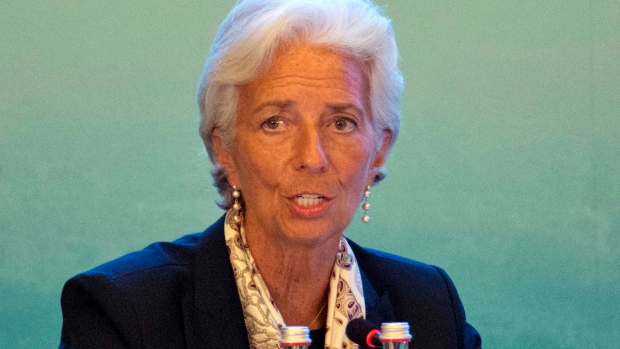Sep 13, 2016
IMF’s Lagarde urges ‘more inclusive’ approach to globalization
, The Globe and Mail

The head of the International Monetary Fund used a speech in Toronto to make a call for a renewed international commitment to globalization, one focused on “stronger, more inclusive” economic growth that leaves fewer people behind.
In the prepared text for a speech to the C.D. Howe Institute, a Canadian think tank, on Tuesday morning, IMF managing director Christine Lagarde argued that trade agreements and international co-operation are critical to reinvigorating a struggling global economy and improving living standard in both the developing and advanced worlds – while acknowledging that governments need to do more to make sure fewer people get left behind in the wake of globalization’s shifts in labour and capital.
“I strongly believe that we can rebuild momentum for trade reforms if the benefits are properly explained, and if we engage in the policies to achieve stronger and more equitable growth,” Ms. Lagarde said.
Ms. Lagarde enumerated the “tangible benefits” that globalization has generated for “most people in most countries.” She stressed that it has resulted in a sharp reduction in the proportion of the world’s population living in poverty in the developing world, and has raised living standards and real incomes in advanced economies.
However, she acknowledged that some sectors and “local labour markets” have suffered “deep, long-lasting effects from overseas competition,” particularly those displaced by low-wage foreign markets. She also noted that globalization has resulted in an increased integration of worldwide capital that, while enhancing investment, has also increased the risks of financial-system instability.
She said that growing wealth and income inequality in many countries, particularly in advanced economies, “has added to a groundswell of discontent.”
She also made note of the added stresses from the global refugee crisis, saying that “the challenge from uncontrolled migration flows” has contributed to “economic and cultural anxieties.”
“These concerns need to be addressed,” Ms. Lagarde said.
She said the first step for global leaders to regain lagging public support for globalization and trade deals is to “establish a positive environment for growth,” noting that the pace of the global economy “has been too low for too long.” She outlined the need for the “three-pronged approach” that the IMF has been advocating: A combination of stimulative monetary policy, increased fiscal stimulus, and structural reform policies designed to enhance productivity and growth potential, including infrastructure investment. She commended Canada’s government for its policy initiatives aimed at this approach.
“I hope that many countries follow Prime Minister Trudeau’s global leadership,” she said. “The more countries adopt it, the greater the mutual benefit for growth.”
Ms. Lagarde will meet Tuesday afternoon with Prime Minister Justin Trudeau in Ottawa, with a press conference to follow.
